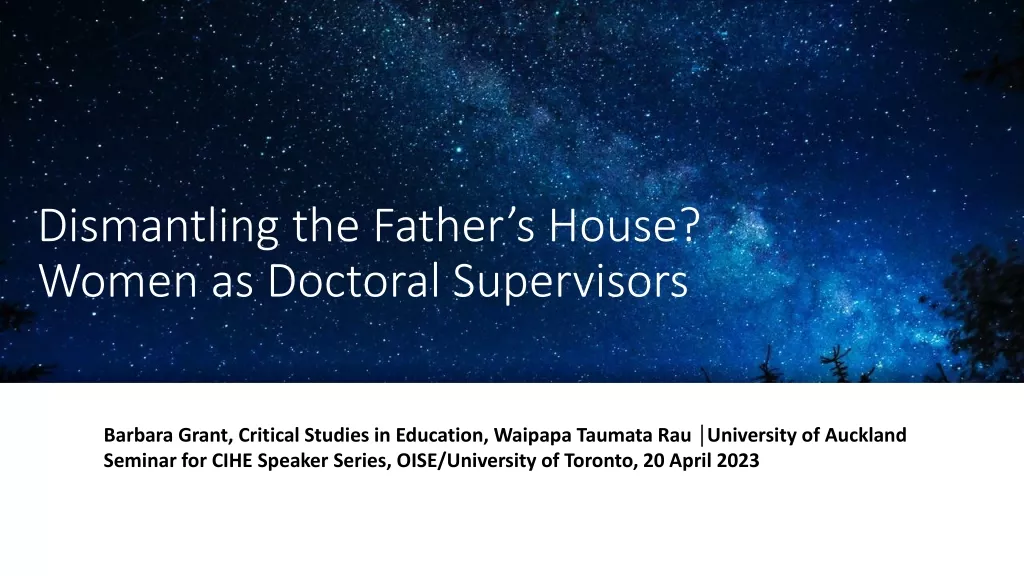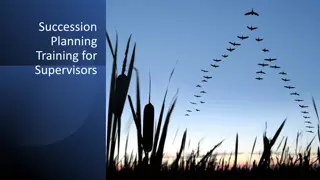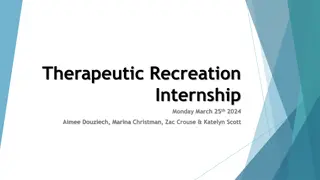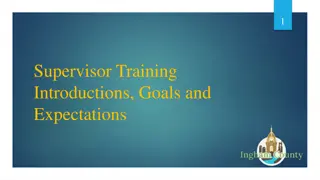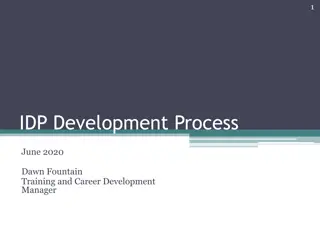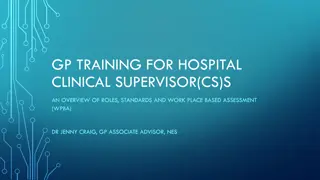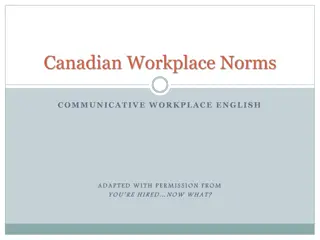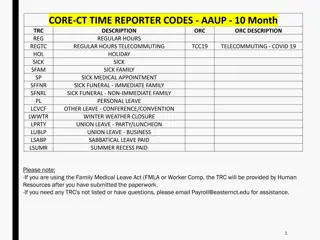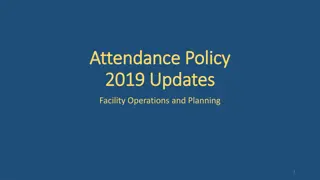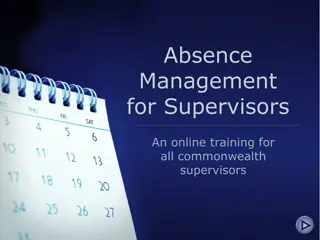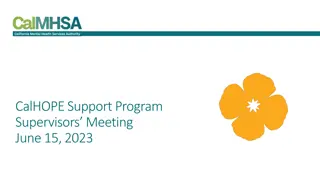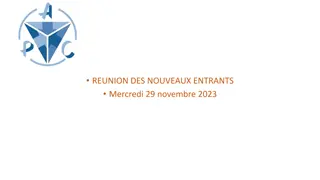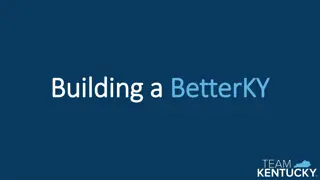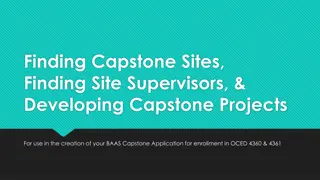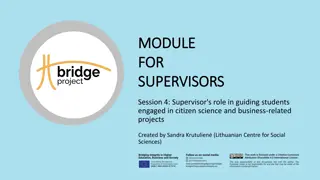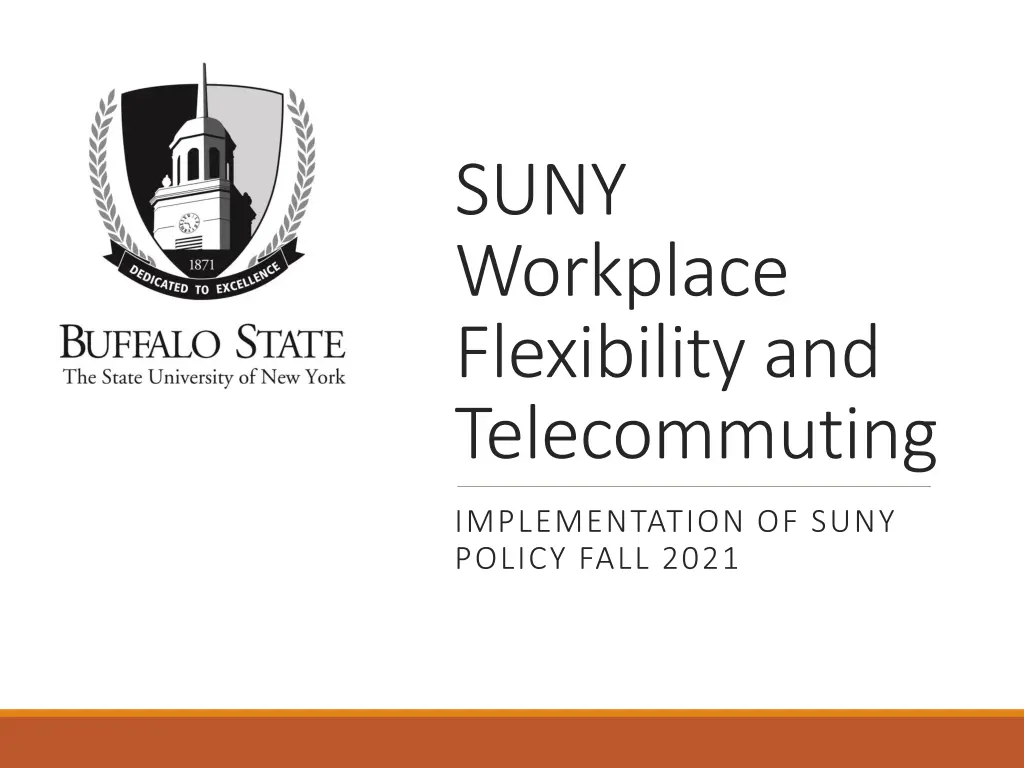
Implementing SUNY Workplace Flexibility and Telecommuting Policy Fall 2021
"Learn about SUNY's policy on workplace flexibility and telecommuting for employees. The policy supports telecommuting based on operational needs, with a maximum of 5 days per pay period. Find out how to apply, get approval, and the process for telecommuting arrangements." (291 characters)
Download Presentation

Please find below an Image/Link to download the presentation.
The content on the website is provided AS IS for your information and personal use only. It may not be sold, licensed, or shared on other websites without obtaining consent from the author. If you encounter any issues during the download, it is possible that the publisher has removed the file from their server.
You are allowed to download the files provided on this website for personal or commercial use, subject to the condition that they are used lawfully. All files are the property of their respective owners.
The content on the website is provided AS IS for your information and personal use only. It may not be sold, licensed, or shared on other websites without obtaining consent from the author.
E N D
Presentation Transcript
SUNY Workplace Flexibility and Telecommuting IMPLEMENTATION OF SUNY POLICY FALL 2021
Policy Overview Supports telecommuting arrangements where it is reasonable to do so based on the college s mission, operational and program needs. Provides management with ability to offer workplace flexibility that may attract and retain a diverse, high performing workforce. No employee may telecommute for their full obligation. Maximum allowable days per pay period (2-week period) is five (5) days. (up to 50% of an obligation) SUNY Telecommuting Program is a pilot, applications can be submitted effective September 15 and shall end June 30, 2022, unless extended by SUNY.
Policy Overview Every application will be considered on an individual basis. Determinations as to which job functions are eligible for telecommuting is subject to management s discretion and based on operational needs. Employee s ability to effectively perform work functions in a telecommuting setting will be considered in approval of the plan. Supervisors must ensure equity when evaluating the operational need for telecommuting arrangements.
Application Process Employees are encouraged to discuss their interest in participating with their supervisor prior to submitting an application. Employees may submit an application beginning September 15 and shall review the SUNY Workplace Flexibility and Telecommuting Policy. Applications to participate must be evaluated, reviewed, documented, and approved by the supervisor, department head, and Cabinet member. All approved requests will be forwarded to HR for tracking. HR will provide confirmation to the employee to begin arrangement. Telecommuting work arrangements shall not commence until it has received written final approval.
Application Approved HR will provide confirmation to the employee to begin arrangement. Telecommuting arrangements may be modified, cancelled, or suspended at any time by management, in consultation with HR. Employees must submit to their immediate supervisor Telecommuting Program Biweekly Progress Reports describing work completed while telecommuting. Failure to do so will result in cancellation of their telecommuting arrangement. Employee can be expected to be on campus on a day that is scheduled for remote work and they do not have to receive another day remote in exchange.
Application Denied If an application is denied, an explanation of the basis for the denial will be provided to the employee. Employees may appeal to HR in writing within 7 calendar days following receipt of the denial. Appeals shall state the reasons for disagreement with management s determination. The policy does not support medical or leave requests. There is a separate process for such requests.
Supervisor Considerations The proposed telecommuting work does not require in-person student or constituent interaction, classroom presence, and the work is typically performed away from the end customer (i.e., student). The work can be performed as effectively from a telecommuting location as a campus location. The telecommuting arrangement does not necessitate the transfer of work which increases the workload to co-workers on campus. The assignments completed in the telecommuting location are consistent with the employee s performance program and scope of responsibilities, or job description based on civil service title.
Supervisor Considerations Key performance metrics such as quality of work products, quantity of work produced, response time/turnaround time, level of service, etc. are measurable and are routinely measured and assessed consistent with the employee s regular professional obligation or job description. The immediate supervisor is accountable for communicating performance expectations, monitoring and measuring performance, providing ongoing performance feedback and formally addressing performance issues. Telecommuting arrangements are reviewed for effectiveness on an ongoing basis and in conjunction with the ongoing assessment of the employee s performance.
For Supervisors/Managers Talk with your team and share your department s organizational expectations and service standards including: Policy guidelines and process timelines Note policy pilot opportunity is a privilege, not an entitlement Every application will be considered on an individual basis; policy is designed for some jobs that don t require 100% in-person presence to be effective Articulate the positions that may not be eligible to participate and why Unit size may impact flexibility options and decision making, on- campus presence, response times, deadlines, peak workflow coverage
For Supervisors/Managers Ask team members to: Consider all the expectations and operational needs, including services provided to cross-divisional operational relationships Consider level of interest in applying Reflect on how effective they felt while working from home Meet one-on-one to discuss pros and cons before applying Be prepared with a draft work plan for remote work days
For Supervisors/Managers During the team meeting: Listen to your team members and invite questions. Make note of unanswered questions and follow up Communicate the need to consider the team collectively before deciding about individual approvals, and consider services provided to cross-divisional operational relationships Remind team members that it is up to the discretion of the manager to implement and monitor how this policy is working for the team
For Supervisors/Managers During the one-on-one employee meeting: Ask for their work plan and proposed schedule Share your initial thoughts on feasibility and concerns as appropriate Make suggestions to improve their plan or explore other flexible work arrangements that may work for the employee and team Remind employee that their request is one of many that need consideration prior to approval Be transparent about the process and next steps
For Supervisors/Managers If the plan is approved: Remind employee that schedule consistency is required, and they must continue to meet their professional obligations Explain that the employee can be expected to be on campus on a day that is scheduled for remote work and they do not have to receive another day remote in exchange Remind employees that their performance will determine if the agreement continues. They must submit the Telecommuting Program Biweekly Progress Reports describing work completed while telecommuting. Failure to do so will result in cancellation of their telecommuting arrangement
For Supervisors/Managers Utilize the Telecommuting Program Biweekly Progress Reports: Provide feedback and guidance during your regular meetings with the employee Monitor the work accomplished on remote days Contact HR for guidance on any performance issues
Documents and Contact SUNY Workplace Flexibility and Telecommuting Policy Application Telecommuting Program Biweekly Progress Report Telecommuting Application Review Guide for Supervisors Telecommuting Application Review Guide for Employees Contact HR with any questions at 878-3042 or e-mail KAWALEL@BuffaloState.edu rev. 9/16/2021




